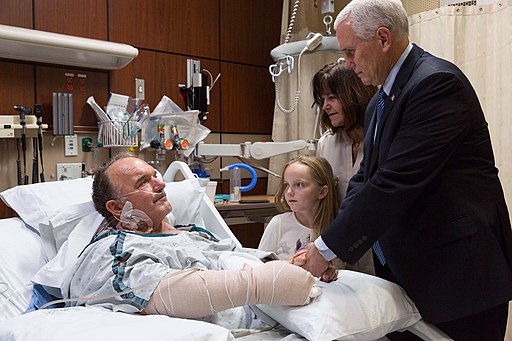
On November 5, 2017, Devin Patrick Kelley parked his SUV outside First Baptist Church in Sutherland Springs, Texas, got out, and opened fire. Kelley murdered 25 people outside and inside the church, wounding 20 others before he turned his gun on himself (after two good guys with guns opened fire on HIM) and saved Texas’s taxpayers the expenses of a trial and imprisonment or execution.
On July 7, US District Judge Xavier Rodriguez ruled, in a trial seeking damages to the victims and their families, that the US Air Force is “60% Responsible” for Kelley’s actions.
Why? Because after Kelley’s guilty plea in a 2012 court-martial, for assaulting his wife and stepson, the Air Force failed to enter his criminal history into an FBI database so that he could be legally forbidden to buy firearms in the future.
Let’s get one thing straight here: Devin Kelley, and no one else, was responsible for Devin Kelley’s actions. Period.
The US Air Force didn’t beat Kelley’s wife or fracture Kelley’s stepson’s skull. Kelley did. The Air Force tried him for it, imprisoned and demoted him for it, and kicked him out for it.
The US Air Force didn’t rape Kelley’s girlfriend in 2013. If that happened (no charges were brought), Kelley did that.
The US Air Force didn’t beat Kelley’s malnourished husky in 2014. Kelley did (and was tried and received a deferred sentence of probation).
The US Air Force didn’t develop a grudge against First Baptist Church and its congregants, which Kelley attended before apparently becoming a militant atheist. Kelley did.
All the US Air Force did was mess up some administrative paperwork (well, computer work, I guess) which, had it been properly filed, might have conceivably made it slightly more difficult for Kelley to obtain a firearm. Probably not. But maybe, just a little.
Kelley was clearly a violent and dangerous man, and a man who had no respect whatsoever for any law that forbade him to do whatever he decided he wanted to do.
It’s absurd to think that a man who made the decision to kill 25 people, and followed through on that decision, would have quailed from stealing the gun he did it with, or from buying that informally and without a background check (supposedly “illegally,” but the Second Amendment says otherwise).
The reason Rodriguez found the Air Force “60% responsible” is that he wanted to give the victims some of your money, and, well, the Air Force has a lot of your money. But in getting where he wanted to go, Rodriguez damaged the very concept of responsibility.
On the bright side, perhaps the judgment will leave the Air Force short money for another bomb to drop on a hospital, wedding, or funeral in the Middle East.
Thomas L. Knapp (Twitter: @thomaslknapp) is director and senior news analyst at the William Lloyd Garrison Center for Libertarian Advocacy Journalism (thegarrisoncenter.org). He lives and works in north central Florida.
PUBLICATION/CITATION HISTORY


